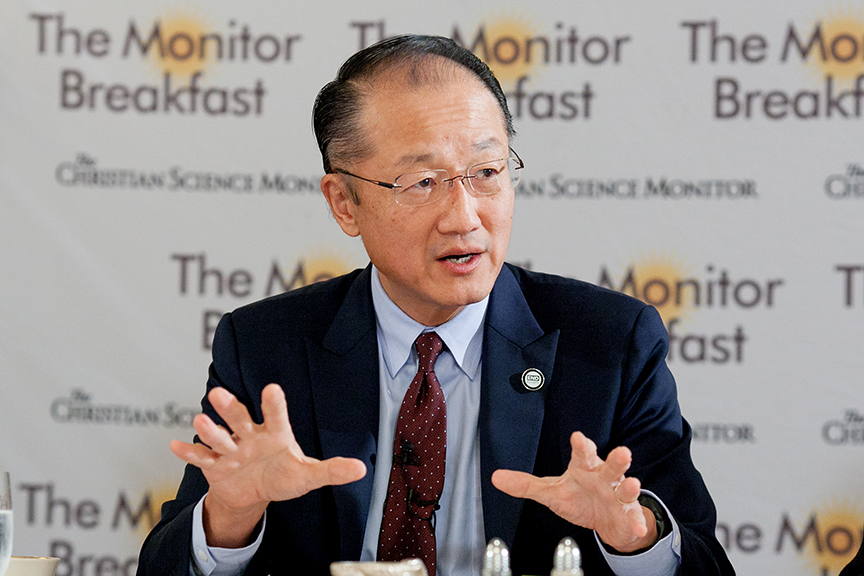
The global health community needs “thousands” more health-care workers in West Africa to tame the Ebola virus epidemic that has so far killed nearly 5,000 people, the president of the World Bank told reporters Friday.
Dr. Jim Yong Kim, chief of the international financial institution, said a lack of trained medical personnel in Guinea, Liberia and Sierra Leone is one of the main challenges hampering the international effort to control an outbreak that has ravaged three West African countries and risks spreading to its neighbors.
Kim said the global community has stepped up its response to Ebola, but conceded that the World Bank, like other international organizations, was late to recognize the severity of the epidemic. The spread of the virus in the three stricken nations at the heart of the epidemic has left healthcare workers in triage mode. As a result, they are often unable to use “the ideal techniques” for combating an epidemic, such as contact tracing—the process of identifying and isolating the contacts of infected patients.
“We are now on a war footing,” Kim said, “but it took us a long time to get there.”
Kim said that international organizations have ratcheted up levels of support to West Africa after a sluggish start, but said more must be done. “We’ve got to get beyond these sort of nihilists notions that nothing can be done,” he said. The World Bank has pumped $400 million into West Africa to fight Ebola.
Kim praised Dr. Craig Spencer, the physician who was diagnosed with Ebola Thursday night in New York City. Spencer contracted the virus while treating Ebola patients in Guinea as a volunteer for the international organization Doctors Without Borders, or Medicins Sans Frontieres.
“Dr. Spencer is a hero,” Kim said, urging more doctors to follow his lead and fight the epidemic at its source. He added that both the patient and city officials executed a textbook response to Spencer’s symptoms.
Kim said he hoped that the cases in Dallas and New York would help open the eyes of the world to a disease gutting large swaths of West Africa and prompt the global community to spring into action more quickly in the future. “I think this is a wakeup call,” he said, pausing slightly. “I hope this is a wakeup call.”
More Must-Reads from TIME
- Donald Trump Is TIME's 2024 Person of the Year
- Why We Chose Trump as Person of the Year
- Is Intermittent Fasting Good or Bad for You?
- The 100 Must-Read Books of 2024
- The 20 Best Christmas TV Episodes
- Column: If Optimism Feels Ridiculous Now, Try Hope
- The Future of Climate Action Is Trade Policy
- Merle Bombardieri Is Helping People Make the Baby Decision
Write to Alex Altman at alex_altman@timemagazine.com